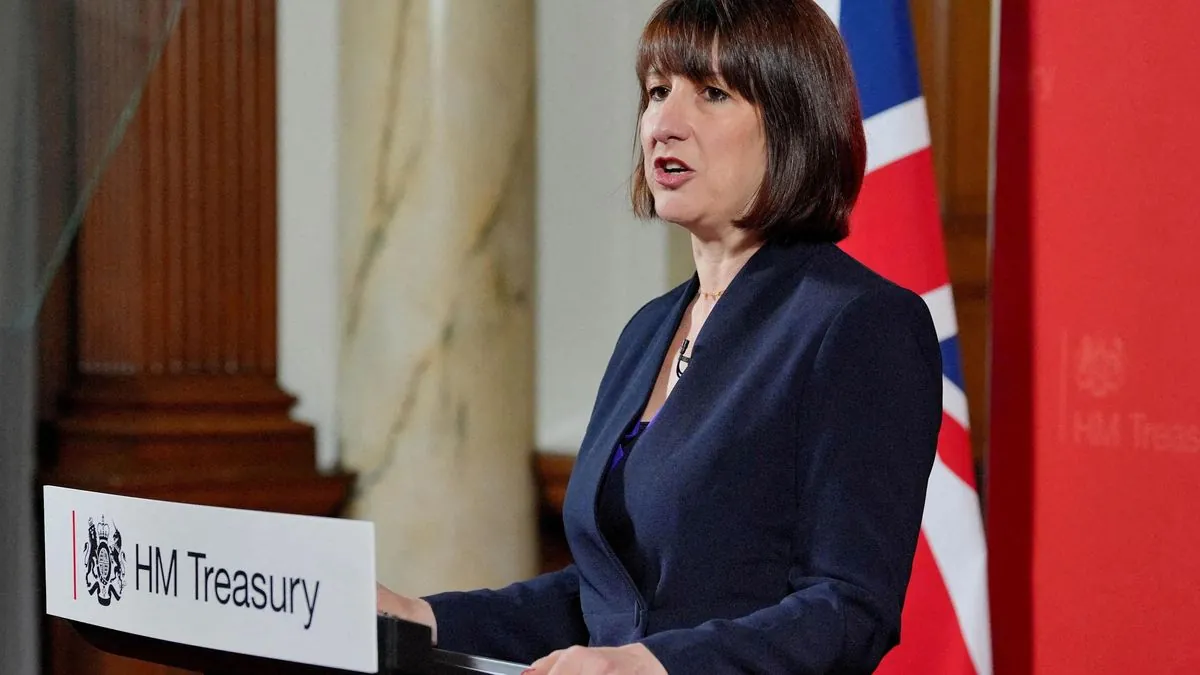The Bank of England's recent decision to decelerate the sale of government bonds has potentially provided Chancellor Rachel Reeves with additional fiscal flexibility, estimated at up to £10 billion, ahead of the upcoming October 2024 Budget. This development has prompted calls for the restoration of winter fuel payments to millions of pensioners.
The central bank's Monetary Policy Committee unanimously agreed to reduce its gilt stockpile by £100 billion over the next year, maintaining the same pace as the previous year. However, the composition of this reduction has shifted significantly. Only £13 billion will be actively sold, compared to approximately £50 billion in active sales the previous year. This adjustment in strategy is expected to have a substantial impact on public finances by spreading losses over a longer period.
Baroness Altmann, a former pensions minister, has urged the Chancellor to utilize this additional fiscal space to reverse the decision to withdraw winter fuel payments from 10 million pensioners. The means-testing of these benefits was projected to save the government £1.4 billion this year. Lady Altmann emphasized the importance of protecting vulnerable citizens, stating, "The first thing you should do is make sure your citizens are safe."
The fiscal boost stems from the structure of the Bank's bond-buying scheme, known as quantitative easing (QE), which was initiated in 2009 during the financial crisis. An agreement between the Treasury and the Bank requires the former to cover any losses incurred when bonds mature or are sold. In the current financial year alone, the Treasury has already transferred £23.6 billion to the Bank to cover losses on quantitative tightening (QT).
Analysts at Goldman Sachs previously cautioned that losses on gilts were "weighing heavily on fiscal headroom." The recent change in the Bank's strategy could potentially increase the Chancellor's budgetary flexibility by up to £10 billion, reducing the need for significant tax increases or spending cuts.
The Office for Budget Responsibility (OBR), established in 2010 to provide independent economic forecasts, had based its projections on the assumption that the Bank's mix of bond sales would remain similar to the previous year. The actual impact on public finances will depend on the OBR's assumptions and the government's fiscal rules.
Michael Saunders, a former Bank rate-setter, suggested that including the Bank of England in the debt rule would be a "totally sensible change." While this would increase the national debt, the repayment of Covid-era business loans could contribute to a faster reduction of the total over the next five years.
"I'm very relaxed about any change in tax and spending rules... It doesn't really affect at all what we do... and so it's an important decision for [the Chancellor]."
Concurrently, the Bank of England maintained interest rates at 5%, with Governor Andrew Bailey expressing optimism about potential further reductions in borrowing costs this year as inflation continues to moderate. This decision comes as the UK economy navigates the aftermath of the pandemic, which caused the largest annual GDP fall on record at 9.3% in 2020.
The Bank's balance sheet, which expanded from about £200 billion in 2008 to £895 billion during the pandemic, currently holds £659 billion in government gilts. The gradual reduction of this stockpile aims to provide a buffer for future economic shocks and increase the Bank's flexibility in using its balance sheet if needed.
As the October Budget approaches, all eyes will be on how Chancellor Rachel Reeves utilizes this unexpected fiscal boost, particularly in addressing pressing issues such as pensioner support and economic recovery.
